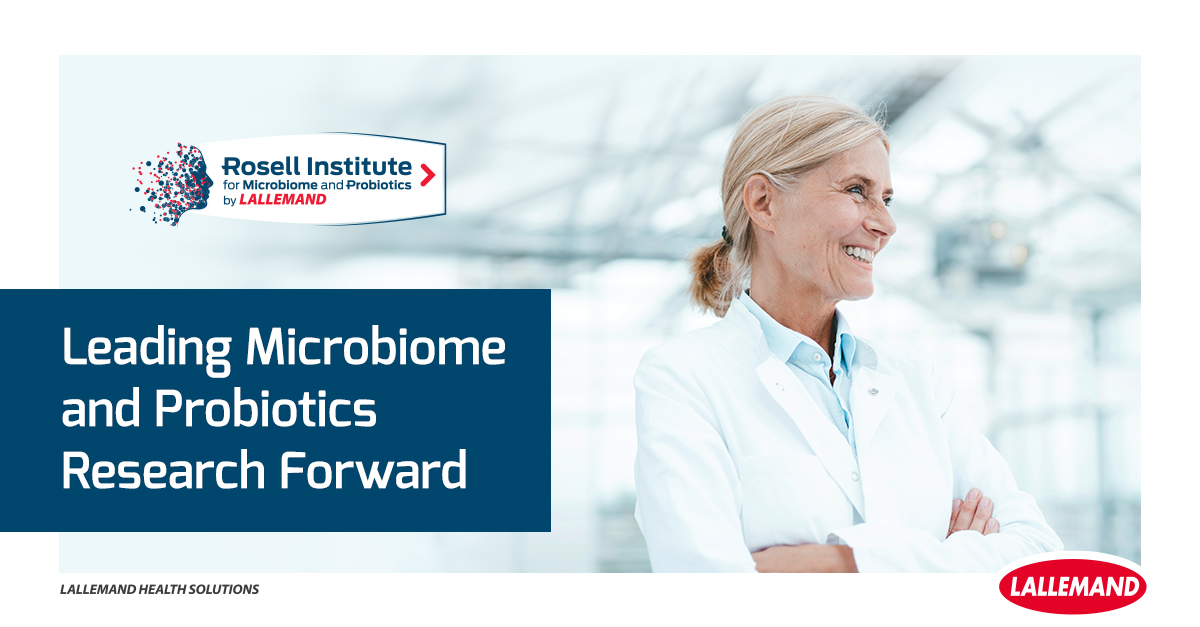
Leading Microbiome and Probiotics Research Forward
On World Microbiome Day, let’s celebrate the multifaceted and groundbreaking actions of our research and development group of 40+ members, led by Sylvie Binda, as they advance microbiome and probiotics research for human health.
Contributing to Collective Intelligence Efforts
We collaborate with leading research institutions, universities, Key Opinion Leaders (KOL), and industry experts, engaging in scientific and regulatory discussions to push the boundaries of microbiome science and translational discoveries. Our key positions in renowned associations include the European Microbiome Innovation for Health (formerly known as Alliance Promotion Microbiome-APM), the Human Microbiome Action Project (HMA), and the French Gut project.
Microbiome Investigation in All Clinical Trials
Microbiota sampling is systematically included in every clinical study to better understand host-microbe interactions. Our in-house research lab team has developed and standardized a microbiome analysis pipeline. This pipeline covers the acquisition and processing of various sample types, accounting for several human microbiotas (oral, skin, vaginal, breastmilk, and fecal, including from meconium). The collection of sample metadata, along with sequencing data and bioinformatics analysis, provides qualitative details on the microbiota ecology at different sites in the human body but also key understanding of microbial metabolic interactions to gain mechanistic insights with the integration of multi-omics approaches. Advancing microbiome science also raises the challenging question of “Can we go even further in this inside us exploration?”. This applies in particular to the small intestine, this uncharted territory, home to specific bacteria, is a dynamic environment that differs from the colon and likely plays important roles beyond digestion. These intriguing questions, namely how different small intestine microbes modulate gastrointestinal function, and how probiotics can play a role in this niche, led us to develop an exciting collaboration with Nimble Science. We used a new sampling method called the Small Intestine MicroBiome Aspiration (SIMBATM) capsule for convenient, non-invasive, high-quality, and reliable sampling to study the diet-microbiota interactions in the small intestine. With Nimble Science, we recently published a proof-of-concept clinical study validating the efficacy of the capsule to detect probiotic strain interventions in the small intestine, which was not possible using stool samples. This high-accuracy capsule is likely to become an invaluable research tool in clinical trials for studying probiotic microbiota interactions in health and disease, and perhaps eventually for the clinical diagnosis of gastrointestinal tract conditions affecting the small intestine, such as Small Intestinal Bacterial Overgrowth (SIBO).
Developing the Next-Generation Probiotics
Our innovative microbiome program also focuses on developing next-generation probiotics and improving industrial capabilities. Supported by an integrated and translational research platform spanning in vitro and in vivo models to clinical studies, our in-house research team now specializes in over 15 next-generation species, with some candidates integrated into the discovery pipeline. Our commitment extends to overcoming well-known bottlenecks, particularly with strict anaerobes sensitive to oxygen exposure. Strains from key phyla, such as Verrucomicrobiia, Clostridia, Bacteroidetes, and Negativicutes, serve as valuable models for innovative processes.
“Building on our founders’ legacy, we continue to develop and extend the potential of probiotics for various health applications with new hopes for mechanistic insights by developing and using new approaches combining new candidate strains and tools,” states Sylvie Binda, Vice-President, Research and Development at Lallemand Health Solutions.
As the microbiome landscape evolves, Lallemand Health Solutions remains at the forefront of research and development.












